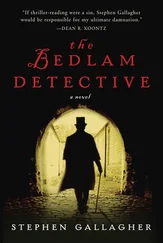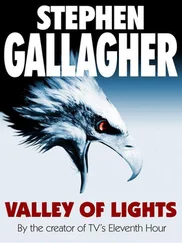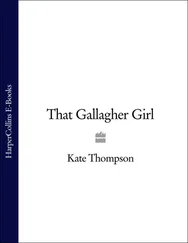“Source meeting out west, again. About the real Cleric. Think we’re getting closer.”
“Really.” He crossed his arms and looked at me out of the corner of his eye, as if he were testing a new angle to see me for what I really was. “Think I’ll come along. Be good to get out in the day again.”
No way, I thought. You’ll ruin everything.
“Be great to have you,” I said. “For any patrol. But honestly, man, this is the source that saved us the other day. You’re the hammer. These people remember you.”
“ ‘The hammer’?” I thought he’d be pleased at being described this way, but it seemed to bother him. “Hajjis call me that?”
“Yeah. You do your thing, we do ours. Seems to be working.” I swallowed. “Seems like it’ll get the guys home. Nothing else matters.”
“Nothing else.”
His eyes crinkled with doubt, but when he unbuckled his helmet strap, I knew I was safe — that we were safe. I turned to walk outside to the Strykers, but Chambers called me back.
“Lieutenant,” he said. “You still a believer?”
I’d tried to read the opening of The Confessions of Saint Augustine but found it tedious. “I don’t always get God, but, yeah, I guess I am.”
Cloudy green met pale slate again. I stood up a bit straighter and stood out a bit wider, mentally counting to ten in Arabic.
“Not that,” he said, pushing past and smelling of ugly sweat. He walked upstairs, not bothering to glance at the mural above. Pedo bin Laden and the smiling children looked surprised at this for some reason. The Mother Hajj didn’t.
On the patrol to Rana’s, I considered what Chambers had meant. I wasn’t sure. Then I considered the rumors about Rana and me. Today wouldn’t help, I knew. But she’d earned it.
She’s a good source, I told myself. She saved us. I’m not overvaluing her info because I like her. Though I do. As a person, I like her. She’s interesting. The ramp dropped just then, and I saw Rana and her boys in the daylight.
They’d dressed for the occasion. Ahmed and Karim wore matching white collar shirts tucked into navy trousers. The eldest wore a brown belt and his ubiquitous scowl, while Karim stared at the declining Stryker ramp with mouth agape, his bug eyes wider than usual. Both boys had slicked down their hair with water so it clung to their scalps like hay. Their mother wore a black burqa made of silk with a translucent veil that didn’t entirely conceal the greenness of her eyes.
I took off my headset and smiled.
“You’re the best, Jack,” she said. “This means so much.”
“No problem,” I said with a too-casual shrug. “Rana.”
She asked if we would take a picture of them dressed up. Snoop hopped out and played photographer, using her cell phone. None of the Iraqis smiled for it. Then they took a seat on the cushioned bench in the rear of the vehicle, Rana in the middle, holding her boys’ hands. Karim nuzzled into his mother while Ahmed whispered into her ear. Across from them, Snoop laughed.
“They think they’re in a robot,” he said. He leaned forward and spoke to the boys, offering them sunflower seeds. Ahmed didn’t respond, but Karim gave the terp a shy smile and accepted a handful. The ramp closed slowly, like a drawbridge, the ochre glow of electronics filling the space between. It is kind of like a robot, I thought.
The crunching of tires on silt turned to the quiet of smooth pavement. As we pushed east back to Ashuriyah, Ahmed asked Snoop where his mask was. Snoop groaned and said something about losing it. Since the Big Man’s edict, he’d also given up carrying around his plastic rifle, becoming more remote and moody in the process. I needed to talk to him again about his plans for after the withdrawal. As soon as I had the chance, I would.
I switched the Stryker’s internal screen from the digital map to the camera of the driver’s view, so the boys could watch the passing landscape. Even Ahmed’s face brightened with interest, and he tugged at his mother’s sleeve to make sure she was watching, too.
“How long?” I asked Rana. “Since you’ve been to the cemetery.”
“We came for my father’s burial.” She patted Karim on the head, ruffling his hair. “This one had just been born.”
Compared to Snoop, the Iraqis looked like baby birds on their bench. Rana’s legs barely reached the floorboard. As we swung south into Ashuriyah and under the Cleric’s arch, Ahmed fell back into the legs of the joe standing out of the rear hatch. If the soldier even noticed, he didn’t show it, remaining upright and rigid. In the meantime, Snoop helped the boy back to his seat, and I put on my headset to yell at the drivers to slow down.
“Are you eating?” Rana asked as I removed the headset again. She tilted her head toward me. “Your face looks thin.”
“Back to three meals a day,” I said. My appetite hadn’t returned with the end of Ramadan, though I ate enough to keep functional. I flexed a bicep. “Can’t you tell?”
“I don’t like being lied to,” she said, her dimple flashing in amusement. “I already have two boys. I don’t need a third.”
I smiled back, though it felt like the corners of my mouth were glowing warm from embarrassment. I changed the subject.
The four Strykers halted at the graveyard’s entrance. Over the radio, I told Washington to join us on the ground as security and everyone else to remain with the vehicles. Valium addict or no, the two children loved him.
I stepped into the late morning. The graveyard lay at the end of a road of packed dirt on the outskirts of town. There was nothing south of it, only dusty badlands cleaved by the occasional ravine, but a convenience store sat across the road in a cement bunker. A wrought-iron fence the color of milk enclosed the graveyard itself, a swing gate the entrance. A small bronze plaque hung from the gate, pink and green graffiti covering the engraved Arabic script.
“Message from Jaish al-Mahdi,” Snoop said. “It say, ‘Home for Sunni donkeys.’ ”
“What up, Scowls!” Washington joined us at the entrance, greeting Ahmed with an exaggerated hand slap. A learned smirk and jutted chin I recognized as my soldier’s own crossed Ahmed’s face. Karim, still holding his mother’s hand, tugged her down and said something in a soft voice, pointing at Washington and Snoop, and then at me. The terp laughed heartily.
“He wishes to know,” Rana said, “why some Americans are painted and some are not. I’ve tried before.” She turned my way. “Perhaps you have an answer?”
I racked my brain for a simple way of explaining to a child the racial history of humanity. I pointed to the gray sky and then to the skin on my arm. “The sun,” I said. “My ancestors lived far to the north, where there’s less sun. Your ancestors lived here, where there’s more sun. Their ancestors lived in the south, where there’s even more sun. We’re all the same underneath. It’s just the skin that changed, depending on where people lived.” I turned to Snoop. “Think you can translate that?”
“Nice work, LT,” Washington said. “Not even that racist.”
Karim nodded, rubbing the back of his head, which produced a spiky cowlick. His mother thanked me. I blushed again.
Rana opened a black umbrella to keep the sun off, and we followed her through the entrance, one at a time, Washington conducting a radio check with the Strykers in a brittle cotton drawl. We walked in pairs: Rana; Karim at her heels, holding on to her dress; me and Snoop; and then Ahmed and Washington in the rear.
The dirt path soon turned to disordered mounds of earth and sandstone markers, graves upon graves jumbled together. There was no grid, no discernible system whatsoever, just sun-blasted rocks and calcified yellow dirt. As we eased down a knoll, the graves became more spread out and distinctive: some had stucco tombstones; others were marked by small religious flags hung over them. A group of tabbies with fur like sunbursts had gathered between two tombs for shade. Most watched us pass indolently, though a tomcat draped in dead flowers hissed.
Читать дальше




![Ally Carter - [Gallagher Girls 02 ] - Cross My Heart & Hope To Spy](/books/262178/ally-carter-gallagher-girls-02-thumb.webp)
![Ally Carter - [Gallagher Girls 01] I'd Tell You I Love You But Then I'd Have to Kill You](/books/262179/ally-carter-gallagher-girls-01-i-d-tell-you-i-lo-thumb.webp)






